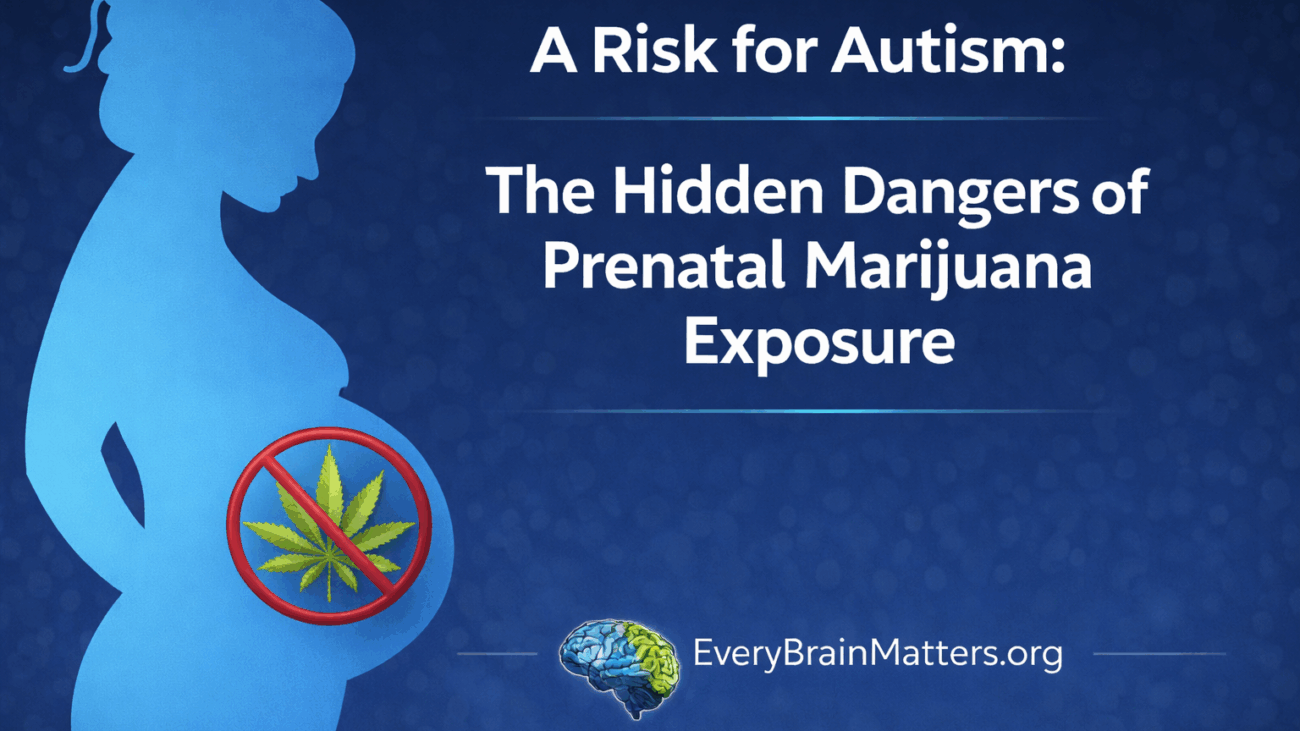Posted on November 2, 2025 View all news
“Women who used cannabis during pregnancy were 1.5 times more likely to have a child with autism. These are not reassuring findings. We highly discourage use of cannabis during pregnancy and breastfeeding.”
— Dr. Darine El-Chaâr, Maternal Fetal Medicine Specialist, Ottawa Hospital Research Institute
🌿A Growing Concern
While Tylenol has drawn recent scrutiny for potential links to autism, research more strongly implicates prenatal marijuana exposure as a cause of developmental harm. Cannabis use during pregnancy has been linked to autism, intellectual disability, ADHD, and impaired brain growth.
Despite these warnings, marijuana use among expectant mothers is climbing sharply, fueled by legalization and aggressive marketing. The Numbers Are Staggering.
- 1 in 12 expectant mothers use marijuana; 1 in 6 when CBD is included.
- In legalized states, use has doubled, and daily use has tripled.
- Diagnoses of Cannabis Use Disorder in pregnancy have risen 150% since 2010.
- Among younger and lower-income women, 1 in 5 use marijuana while pregnant.
Testing suggests even higher exposure rates than women report — meaning hundreds of thousands of unborn babies are affected each year.
🧠The Science Is Clear: THC Harms Developing Brains
THC, the psychoactive compound in cannabis, crosses the placenta and interferes with fetal brain development.
It alters gene expression, disrupts neural pathways, and restricts placental blood flow, which reduces oxygen and nutrients to the baby.
“When the placenta isn’t functioning well, it can affect the baby’s development and growth.”
— Dr. Jamie Lo, Oregon Health & Science University
⚠️Behavioral and Mental Health Effects
THC doesn’t just reach the baby — it changes how the baby develops.
Children exposed to cannabis in the womb face higher risks of:
A 2022 JAMA Pediatrics study found these problems often persist into adolescence.
“Prenatal cannabis exposure has the opposite effect of normal stress regulation—causing increased anxiety, aggression, and hyperactivity.”
— Dr. Yoko Nomura, Queens College, CUNY
🚫Dangerous Misinformation from Retail Marijuana
A 2018 study revealed that 69% of dispensaries recommended marijuana for morning sickness, despite the lack of medical evidence.
“There’s an industry that wants to sell marijuana regardless of whether it’s safe.”
— Dr. Jordan Tishler, Harvard Medical School
These recommendations contradict the American Academy of Pediatrics and the American College of Obstetricians and Gynecologists, both of which strongly warn against cannabis use during pregnancy and breastfeeding.
Marijuana shops employees are not medical professionals—yet their advice is shaping maternal health decisions.
❌No Safe Amount
“No amount of marijuana and associated product use in pregnancy and lactation is safe.”
— Dr. Joseph Polcaro
THC accumulates in body fat and lingers for weeks. The fetus can absorb up to 30% of what the mother consumes. Even occasional use can impair growth and neurodevelopment.
Experts advise stopping marijuana use at least three months before conception.
“We recommend safer options for morning sickness. Marijuana has not been proven safe or effective.”
— Dr. Vonne Jones, OB/GYN
Pregnant women with nausea are four times more likely to use marijuana, but the supposed relief comes at a lifelong cost to the child. Chronic use can even cause the mother to develop cannabinoid hyperemesis syndrome, a painful vomiting cycle.
“Using any amount of marijuana can be bad for your baby—during pregnancy and after birth.”
— Dr. Adrienne Richardson, OB/GYN
👶Breastfeeding and THC Exposure
“THC and CBD bind heavily to fat, and fat is a main nutrient in breast milk.”
— Kerri Bertrand, UC San Diego
THC remains in breast milk for up to six weeks, exposing babies even after the mother stops using.
“To promote safe breastfeeding, it’s critical to emphasize marijuana abstention both early in pregnancy and postpartum.”
— Dr. Miya Bunik, University of Colorado
💊The “Medical Marijuana” Illusion
Marijuana is not a standardized medicine. It lacks:
- Approved dosages or guidelines
- Quality control for purity and potency
- FDA approval for pregnancy-related use
Contamination with mold, heavy metals, and bacteria is common in marijuana products.
“Who is monitoring quality control of these products? There’s often a big discrepancy between what they claim and what they actually contain.”
— Dr. Nora Volkow, National Institute on Drug Abuse
⚖️The Bottom Line
“The culture of legalization does not equate with safety. We’re talking about the most vulnerable population.”
— Dr. Erica Wymore, University of Colorado
Legalization and marketing have created a false sense of safety. But the science is clear: prenatal and postpartum cannabis exposure harms babies.
This is not about personal freedom — it’s about protecting those who cannot protect themselves.
As debates swirl around Tylenol, the greater and clearer danger is marijuana.
Prenatal cannabis exposure is a growing public health emergency.
Protecting developing brains begins before birth. Choose health. Choose truth. Choose to protect the next generation —
Because Every Brain Matters.

